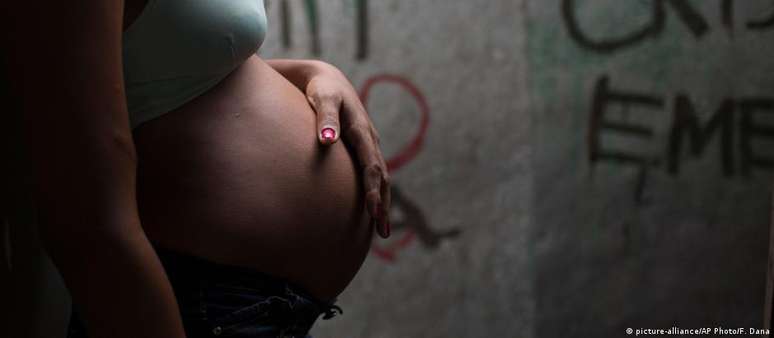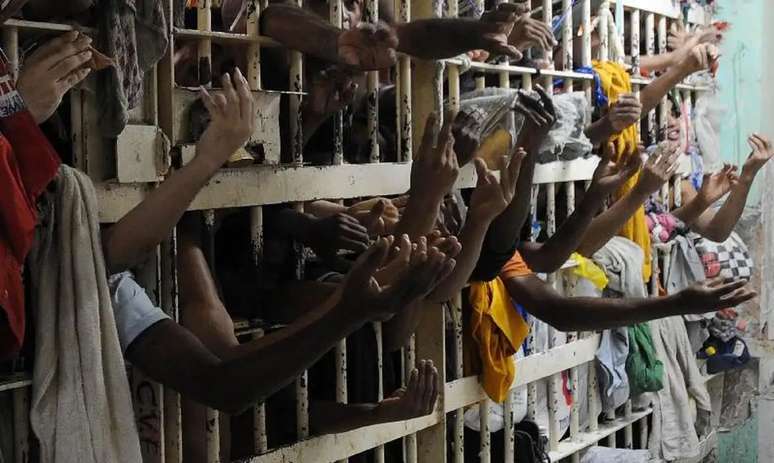Due to lack of access to care and treatment, Black, Brown and Indigenous mothers from the Northern and Northeastern suburbs are most at risk of dying during pregnancy, childbirth or the puerperium. departments with access to champagne and exclusive treatments. Meanwhile, many mothers in regions traditionally less equipped with hospitals, and also in the suburbs of large cities, die for reasons such as lack of intensive care and infections.
This is yet another portrayal of inequality in Brazil, where the maternal mortality rate, related to deaths of women during pregnancy or within a 42-day period following termination of pregnancy, as defined by the World Health Organization (WHO ), is alarming.
Preliminary data from the Brazilian Obstetric Observatory indicate that the country had 1,252 maternal deaths in 2022, which means an index of 50.6 deaths for every 100,000 births. The numbers are not yet closed and, according to Rossana Francisco, a professor at the University of São Paulo (USP) and obstetrics coordinator at the observatory, other cases may still be registered.
According to the expert, these are very high numbers. “This shows that we are back to the level of 2019, when Brazil recorded 57 deaths for every 100,000 births, which is very serious,” he says.
Pregnant women have been particularly hard hit by the Covid-19 pandemic in Brazil. In 2021, according to the Brazilian Obstetric Observatory, at least 1,518 pregnant women died from the coronavirus and the maternal mortality rate reached 107.53 per 100,000, a figure not recorded since the 1990s.
For experts, the fact that the number has dropped again in 2022 is no reason to celebrate, and maternal deaths are expected to be much less frequent in the country.
international inequality
Maternal mortality is a problem in many countries. According to a report released by the United Nations in February, a woman dies every 2 minutes worldwide due to complications related to childbirth or pregnancy.
These data also indicate global inequality. In 2020, for example, the number of maternal deaths per 100,000 in Germany was less than 4. In the same period, in Brazil, the rate was 71.97.
To combat the problem, the United Nations has launched a global program. Brazil is a signatory to the document and has pledged to reduce the number of deaths to 30 per 100,000 by 2030. According to Rossana Francisco and other experts consulted by DW, however, the goal is very unlikely to be achieved.
The situation is worse in the North and Northeast
Brazil has not learned from the coronavirus tragedy, considers the coordinator of the Brazilian Obstetric Observatory.
“Covid was like a magnifying glass that highlighted the situation in the country. During the pandemic, one in five pregnant women who died of the disease was not admitted to intensive care. And one in three was not intubated. This shows that the women are not protected,” says Francisco.
In 2021, the Brazilian states with the worst maternal mortality rates were: Roraima, Tocantins and Rondônia. While data for 2022 is not yet closed, Francisco says the North and Northeast remain the regions at the highest risk for mothers due to lack of access to care and treatment.
“There is a shortage of hospitals specializing in high-risk pregnancy and care, which have intensive care beds for mothers and newborns, as well as equipment and teams specialized in this care,” he says.
Nine out of ten deaths could be avoided
In the post-pandemic period, according to data from the observatory, the causes of death of mothers and mothers in Brazil have returned to their previous ones: hypertension, in first place, followed by hemorrhage and infection. Experts say 90% of these deaths could have been prevented.
“Many women who have a hemorrhage, for example, die because they don’t have access to treatments like dialysis and blood transfusions,” Francisco says.
The expert also emphasizes the need for prenatal care. “In 2022, numbers indicate that 72% of women had seven prenatal sessions. This means that 29% were at greater risk of doing less than they should have.”
racial inequality
“Maternal mortality is a very important social indicator and one that shows inequalities in Brazil. In the suburbs of big cities, for example, the mortality rate can approach that of remote rural areas of the country,” says the epidemiologist and Fiocruz researcher Emanuelle Franco Va.
The expert points out that racial inequality is also reflected in maternal mortality. Black, Brown, and Indigenous women are most at risk of dying from complications during childbirth. According to the Anti-Black Racism and Maternal Death from Covid-19 – What We Saw in the Pandemic survey, coordinated by Goes, the chance of maternal death was 62% higher among black and black women than white women during the pandemic.
“To fight maternal mortality, we must also fight racism. Many black women are not receiving treatment and are neglected,” says the researcher.
“Racism is a very important determinant of health,” confirms nurse Alaerte Martins, a member of the Feminist Health Network. She points out that black women, for example, suffer more from high blood pressure and do not receive adequate care.
“These women are abandoned. All over the world, ethnic minorities are most at risk. In Brazil we are not a minority, but even so we suffer from institutionalized racism,” she says.
This means, according to Martins, that many black women do not have access to, for example, an emergency caesarean section.
While on the one hand she considers the number of caesarean sections in Brazil “embarrassing” and believes that there should be a national campaign to warn against the risks of surgery, on the other the nurse points out that caesarean sections save lives.
“What happens in many hospitals is that women who don’t need a caesarean section do it, while others who really need one are left without access,” she points out.
Urgent prevention and awareness
Brazil is the second country in the world for the frequency of caesarean sections (second only to the Dominican Republic). A scenario that, according to experts, increases the number of infections and bleeding. Many women do not have the right to choose the type of delivery and end up undergoing the operation imposed by doctors, Goes points out.
To reduce the number of maternal deaths, nurse Alaerte Martins believes the country should launch a major awareness campaign on the risks of caesarean section.
Rossana Francisco, of the Brazilian Obstetric Observatory, believes that the country also needs a campaign for prevention and access to prenatal care.
“Women must know that, for example, in case of fever, hypertension, they must go quickly to the hospital,” she says, stressing that the protection of pregnant women’s health in Brazil must urgently improve.
Source: Terra
Rose James is a Gossipify movie and series reviewer known for her in-depth analysis and unique perspective on the latest releases. With a background in film studies, she provides engaging and informative reviews, and keeps readers up to date with industry trends and emerging talents.







